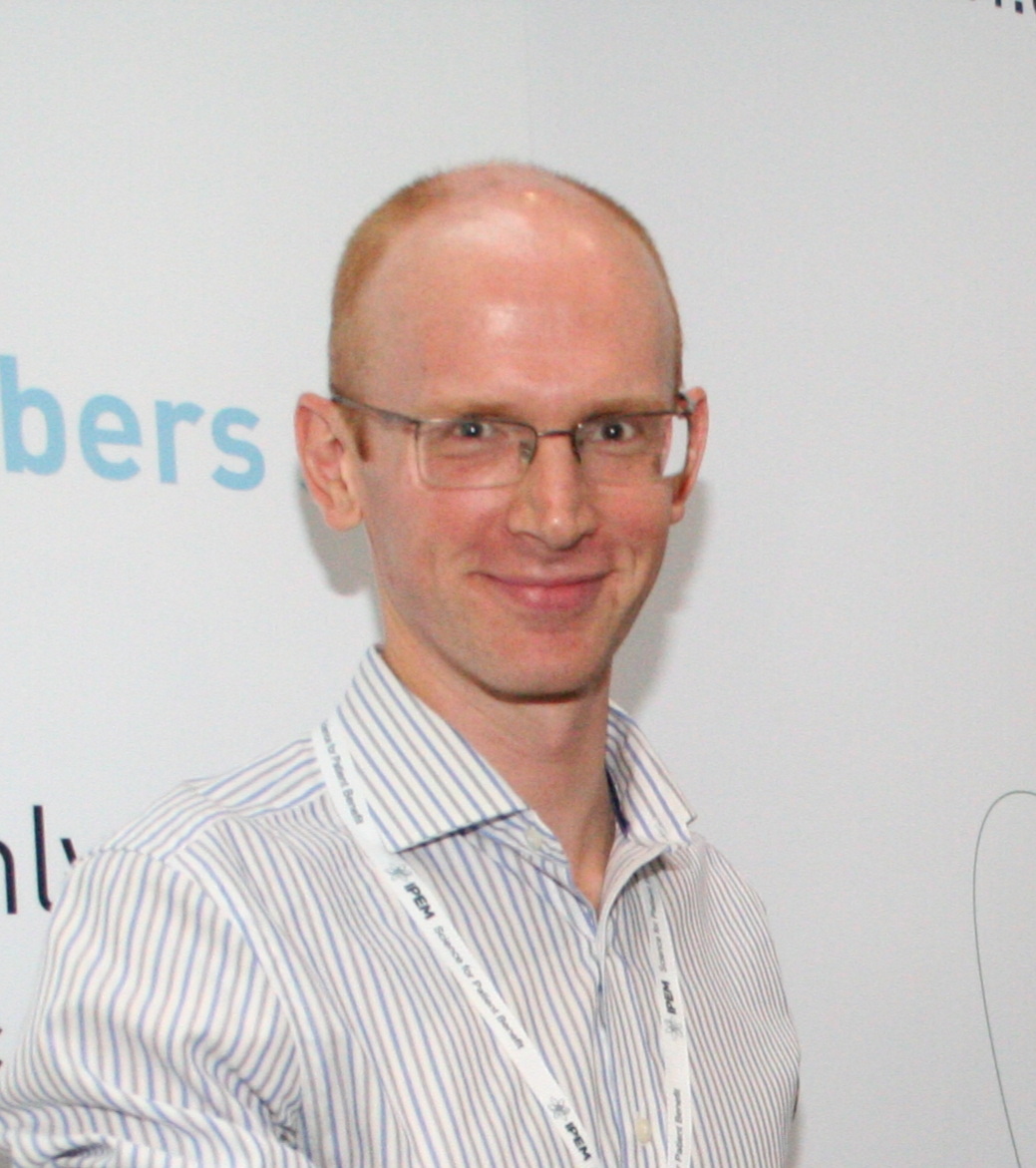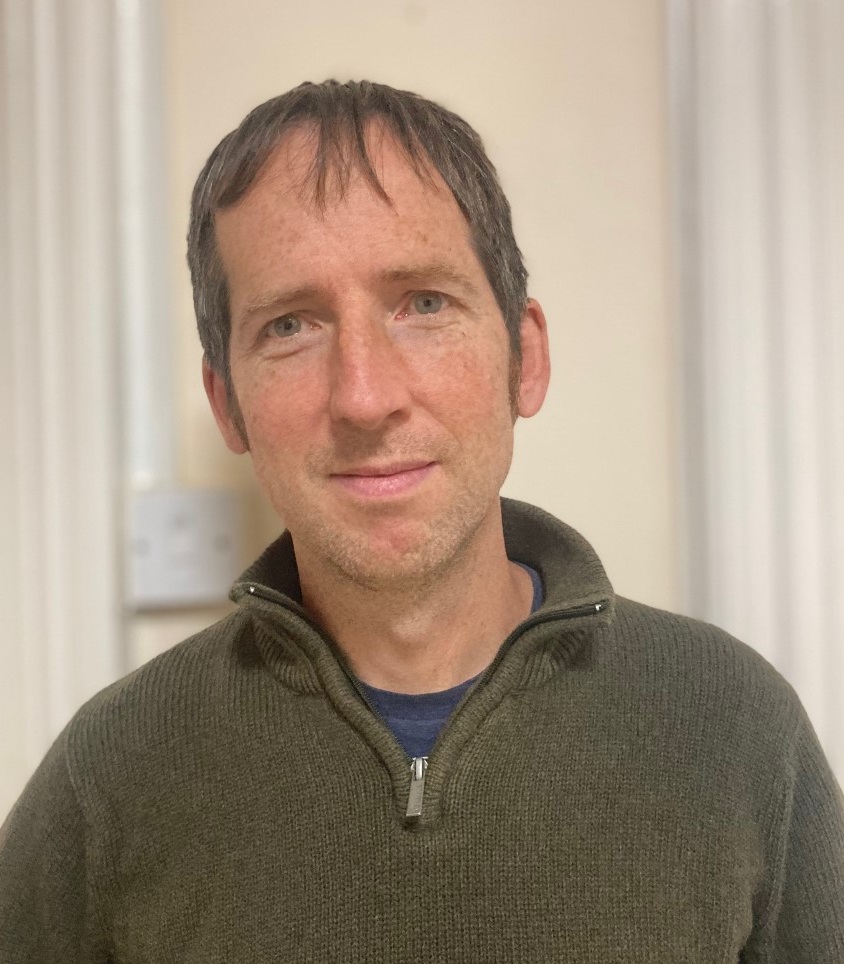Invited speakers

Dr Daniel McGowan
Head of Education and Research, Consultant Clinical Scientist, Oxford University Hospitals NHS Foundation Trust
Daniel is the Head of Education and Research for the Department of Medical Physics and Clinical Engineering, Oxford University Hospitals NHS FT where he is a Medical Physics Expert and Radioactive Waste Advisor.
Daniel is an Associate Professor with the University of Oxford’s Department of Oncology and is Course Director for their MSc in Medical Physics with Radiobiology. He supervises a number of doctoral students within his Clinical Academic Group. He is a Fellow of the British Institute of Radiology, Institute of Physics and Engineering in Medicine, Higher Education Academy and the Academy of Healthcare Science. He is an Honorary Senior Research Fellow in the School of Medicine, Cardiff University. He has been a member of the British Institute of Radiology (BIR) Nuclear Medicine and Molecular Imaging Committee since 2013, chair since 2021. He has been a Trustee of the BIR since 2025. He was Co-Chair of the UK Internal Dosimetry Users Group (IDUG) 2011-2013 and has served as Emeritus Chair since 2014.

Professor Raj Jena
Raj Jena is a Professor of AI in Radiation Oncology based at the University of Cambridge Department of Oncology and Cambridge University Hospitals.
His research interests focus on clinical image processing, data science and machine learning applications. Raj is the chief Investigator for Hamlet.rt, a multi-centre radiomics study in radiation therapy open at over 12 sites over the UK and Tata medical centre in Kolkata. He is a member of the Royal College of Radiologists’ AI in Clinical Oncology (AICO) committee.
Raj enjoys working at the interface between the clinical, academic and commercial sectors. Following successful collaborations with Siemens and other imaging companies, he works as a clinical consultant to the Health Futures team at Microsoft Research. Raj has had the opportunity to work with thought leaders in medical image analysis, and subsequently led the NHS AI lab funded OSAIRIS project, which developed the first cloud based open-source imaging AI solution to be deployed at Addenbrooke’s Hospital.
Raj is now applying his knowledge of machine learning and image processing to the STELLA project, an international collaboration developing a novel smart radiotherapy unit for low- and middle-income countries.

Mr Richard Meades
Principal Nuclear Medicine Physicist, The Royal Free London NHS Foundation Trust
As a state registered clinical scientist in the NHS, Richard leads the provision of medical physics expertise for one of the largest radionuclide therapy services in the NHS. He has over 20 years of clinical and research experience in diagnostic and therapeutic nuclear medicine, radiation protection, national and international clinical trials, staff training and has held several honorary academic lecturing positions.
Active in the development and implementation of Artificial Intelligence (AI) in healthcare, Richard has published peer review publications and professional magazine articles in this area, founded and was the inaugural chair the Institute of Physics and Engineering in Medicine's (IPEM) AI group, is a member of the European Federation of Medical Physics (EFOMP) AI Group Steering Committee and the AXREM AI Special Focus Group. He also works on the strategic and collaborative AI initiatives of IPEM through his senior volunteering roles as a member of its Science, Technology, Engineering, Research and Innovation Council (STERIC) and President’s Advisory Committee. In addition, he has been an invited conference speaker and lectures on AI and has sat on national conference Scientific Organising Committees/Steering Groups to advise on and curate their AI content.

Dr Camarie Welgemoed
Dr. Camarie Welgemoed is a dual-qualified diagnostic and therapeutic radiographer with extensive experience in breast imaging and radiotherapy.
She completed her training in 1986 at the University of the Free State and began her career as a therapeutic radiographer in South Africa. After moving to the United Kingdom, she joined the NHS in 1992 where she went on to specialise in breast radiotherapy.
In her current role as Research and Development Lead Radiographer based at Charing Cross Hospital she leads initiatives to strengthen research capacity and capability within the service while advancing her own research portfolio.
Her research journey began with her MSc project at Sheffield Hallam University; evaluating field-based nodal techniques, which led to the development of nodal contouring guidelines and highlighted issues of under-dosing. This work inspired her doctoral research at Imperial College London, where she completed her PhD focusing on auto-segmentation and radiomic image analysis to develop breast cancer prediction models.
At the Training Day, she will be presenting some of her post-doctoral research, with the focus on exploring the role of integrating radiomics into the clinical pathway for patients undergoing breast radiotherapy.

Dr Jonathan Taylor
Jonathan Taylor is a Consultant Clinical Scientist at Sheffield Teaching Hospitals and an Honorary Lecturer at the University of Sheffield.
His role spans Nuclear Medicine, where he practises as a Medical Physics Expert, and the Sheffield 3D Lab, a centralised hospital service for advanced image quantification, visualisation and 3D modelling. Sheffield 3D Lab
He completed a PhD in 2019 through an NIHR Fellowship, focusing on machine learning in Nuclear Medicine. Since then, he has led the development, evaluation and clinical deployment of multiple AI applications, ranging from automated MUGA processing and chest X-ray classification to MRI kidney volumetry. His current work includes contributing to Sheffield’s AI and Imaging governance group, helping to shape how new digital tools are evaluated, implemented and monitored across the trust.
Nationally, Jonathan is co-chair of IPEM’s AI Working Party, working with colleagues across the UK to advance safe and effective adoption of AI in healthcare.

Dr Josh Mason
Josh is a principal radiotherapy physicist at Imperial College Healthcare NHS Trust, specialising in external beam treatment planning and brachytherapy.
He has more than 15 years experience as a clinical physicist and also completed a PhD in prostate brachytherapy. He leads a project to implement AI based auto-contouring at Imperial, funded by an Imperial Health Charity Innovation grant. The project included evaluation of commercial systems, governance and safety aspects of implementation, commissioning and automated audits of clinical usage. The auto-contouring system at Imperial is used for all planned external beam, SABR and brachytherapy treatments.

Dr Matthew Blackledge
Dr Blackledge is a dedicated researcher specializing in the intersection of magnetic resonance imaging (MRI) and artificial intelligence (AI) to advance cancer prognosis.
During his PhD, Dr. Blackledge developed the "computed diffusion-weighted MRI" technique a method now implemented in clinical MRI scanners globally. In his post-doctoral work, he created automated methods for detecting advanced bone cancers in whole-body MRI, which have since been commercialized as a certified medical device.
Currently, Dr. Blackledge leads the Computational Imaging Group at the Institute of Cancer Research (ICR) in the United Kingdom. The group focuses on enhancing AI techniques for cancer diagnostics, with applications across advanced prostate, breast, and lung cancers, gynecological diseases, sarcoma, and multiple myeloma. The group’s research leverages MRI and CT datasets to improve treatment response evaluation and radiotherapy planning.
Committed to translating research into clinical practice, Dr. Blackledge collaborates closely with medical device manufacturers, develops custom computational tools for existing medical imaging platforms, and has co-founded a spin-out company in partnership with the ICR.
Dr. Blackledge's current research agenda includes:
- Establishing Bayesian techniques to improve personalized cancer treatment, including investigations into how tumor heterogeneity, identified through multiparametric imaging, impacts therapy response and informs adaptive treatment strategies.
- Advancing AI-driven imaging and image analysis to lower the costs associated with quantitative MRI, particularly whole-body imaging, benefiting both patients and healthcare providers. This work includes automated quality assessment of AI algorithms to facilitate clinical acceptance and is aimed at establishing models for personalized treatment in advanced cancers and population screening applications.
- Exploring new quantitative imaging methods, such as magnetic resonance elastography, whole-body intravoxel incoherent motion modeling, and contrast clearance analysis, to assess cancers with heterogeneous response patterns both within and across tumors.
- Ensuring that all methodologies are deployable and sharable for research use by other teams, fostering broader collaboration and impact.

Dr Alison Starke
Principle Radiotherapy Physicist, NHS Greater Glasgow and Clyde. Alison is a Radiotherapy Physicist currently working in Glasgow.
Prior to this, she worked at Barts Health NHS Trust and HCA Healthcare. She completed a PhD in Clinical Engineering, specialising in neural networks, and maintains an active interest in the application of artificial intelligence to radiotherapy practice and research.